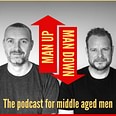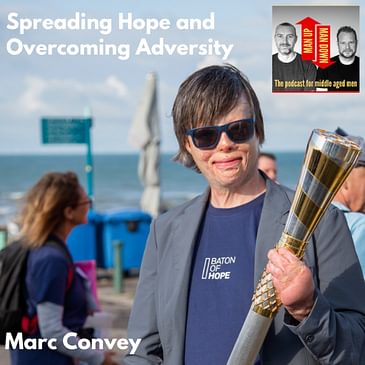Marc Convey’s story is one of the most inspiring tales you are likely to hear – it certainly was for us. Despite suffering life-altering injuries from a devastating fire, at the age of 14, when he was given a 3% chance of survival Marc's strength and determination have turned him into a beacon of hope worldwide.
He shares his story and insights as a powerful speaker, promoting mental health, wellness, and resilience when chasing your dreams. Marc is also an accomplished entrepreneur and creative professional, bringing his unique talents to various industries. Discover how his passion and expertise can help you achieve your goals.
Back in 1992, Mac was visiting family in Ireland. Despite the age old warning of not to play with matches, Marc accidentally started a fire in his Uncle’s garage, which contained petrol.
Due to the remote location of his uncle’s house, and a severe storm, Marc was lucky to make it to hospital. But he continued to beat the odds,
Suffering significant injuries, painful dressing changes every 2 hours and being unable to see due to bandaging Marc refused to give up. Marc says that there were two things that carried him through – the support of his mum, who was his primary carer for 5 years – and an incredibly stubborn attitude.
When he finally well enough to fly back to London, he was put into a specialist burns unit with a doctor who Marc formed a bond with (describing him as a ‘mad professor’). Despite being told that it would be at least year before he could return to school, Marc was determined not to drop down a year.
And he didn’t.
He outright refused to give up, and adapted as best he could, which included him learning to write with his left hand. Despite suffering horrendous trauma, Marc states that he has never suffered from post traumatic stress (PTSD).
Marc hasn’t had any nightmares, and he wants to use his book to raise awareness that trauma doesn’t have to define you; we shouldn’t put people into categories. What helped him was mindfulness which he discovered through hypnotherapy.
Mark’s parents were shocked when he announced that he wanted to leave his school, which had made many adaptations for him, as he flet it wasn’t healthy to “live in a bubble”. He went to a Sixth Form College where he didn’t know many people, despite the fact that he was wearing a clear plastic mask to protect his skin.
Mark surprised his parents further by announcing that he wanted to go to University, despite being told just a few years previously that he’d probably need 24 hour care.
But Marc he wanted to live his own life and set his own goals.
[...] Fast forwarding to today, he is writing a book about his story and talks about positive mindset; sharing his experience and journey to find himself for the past 30 years, resulting in him now having the right mindset and confidence to help others.
The stage of mid-life transition and Covid made a lot of us think about what we really want in life and what is important to us.
We will have Marc back once he wrote his book and hopefully join at one of our next events.
You can find out more about Marc and reach out to him on LinkedIn: https://www.linkedin.com/in/marc-convey/ or via his website www.marcconvey.com (coming soon).
Hosted on Acast. See acast.com/privacy for more information.




